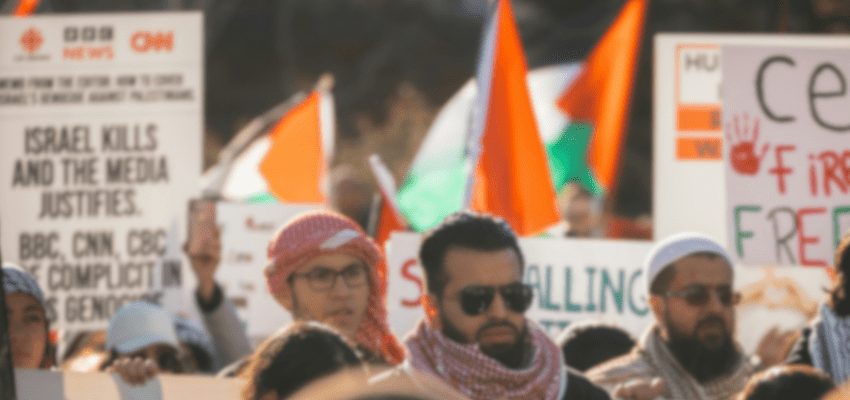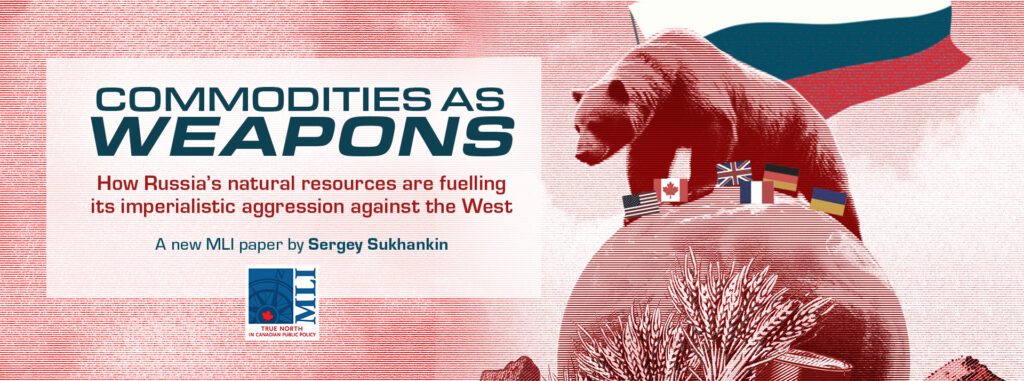This article originally appeared in The Hub.
By Dagny Pawlak, December 5, 2024
This week’s anti-Israel protest at Parliament Hill’s Confederation Building highlighted the consequences of our political leadership’s failure to confront the deepening divisions within Canadian society over the Israel-Palestine conflict, as radical voices found their way to the very doorstep of those in power. The protest, ending with arrests, was a visible expression of the divisions taking root in Canadian society—a needless polarization fed by the kind of equivocation we’ve seen from our political leaders.
For those eager to argue that the protesters’ Jewish identity somehow validates the substance of their claims—think again. Spoiler alert: the merit of an argument doesn’t hinge on the faith of its advocate. Whether one identifies as Jewish or Muslim holds no inherent claim to moral superiority, nor does it confer a better understanding of Israel’s pivotal role as a frontline in the larger battle to protect Western ideals and the future of free societies. No belief system is immune to misinformation and bias.
To paint this as a religious issue couldn’t be more misguided. Canada is grappling with the domestic consequences of a global extremism left undenounced. In their silence, our leaders leave a vacuum where local extremism and chaos take root.
Let’s take Justin Trudeau’s recent endorsement of the International Criminal Court’s arrest warrants for Israeli leaders Benjamin Netanyahu and Yoav Gallant, for example. Framed as a principled stand for justice, his remarks have done little to bolster international law and everything to embolden those who see moral equivalence where there is none. Less than a day after his statement, Montreal bore witness to rioters chanting for a “final solution,” and wreaking havoc under the guise of political protest. To call these events anything other than antisemitic riots is to deny the obvious.
The ICC’s actions and Trudeau’s remarks are not isolated moments. Together, they reflect a much deeper problem: the erosion of moral clarity at a time when it is most desperately needed.
Originally envisioned as a safeguard against atrocities like genocide and war crimes, the ICC now seems to stray from its foundational purpose. Its selective approach to justice, notably prioritizing politically charged cases while overlooking others, raises troubling questions about its credibility. For instance, in its decision to issue arrest warrants for Israeli leaders, the ICC has effectively conflated the actions of a democratic state engaged in self-defence with the systematic atrocities of Hamas, an organization defined by its deliberate targeting of civilians.
The flaws in the ICC’s judgment are manifold. Legal scholars and commentators have pointed out that the court’s interpretation of international law in this instance is not just questionable but dangerously misguided. Israel, a democracy facing existential threats, is held to a standard that seemingly ignores the broader context of its conflict. The ICC’s actions imply moral equivalence between a state seeking to protect its citizens and a group actively pursuing their destruction—a distortion that undermines both the court’s legitimacy and the very concept of justice.
This is where our government’s role becomes critically relevant. Trudeau’s endorsement of the ICC’s decision amplifies its flawed logic and lends undue legitimacy to a narrative that blurs the line between democratic self-defence and acts of terror. Rather than reinforcing international law, such a stance erodes the principles that underpin it, sending a dangerous signal that terrorist violence and state self-defence can be judged on the same moral plane.
It’s no coincidence that Montreal’s streets erupted in hateful violence mere hours later. Nor is it a surprise that the very doorstep of Canada’s political leadership became occupied by anti-Israel protestors this week. When a nation’s leader refuses to draw clear lines between justice and barbarism, others step in to exploit the ambiguity.
The riots themselves, hastily labeled by some media outlets as “anti-NATO protests,” were nothing of the sort. They were fueled by the same rhetoric that has historically served as a precursor to atrocity—rhetoric that dehumanizes, scapegoats, and justifies violence under the banner of a supposedly righteous cause. To hear chants for a “final solution” in the streets of a Canadian city is to confront a failure that lies squarely at the feet of those in power.
One is reminded of Churchill’s admonition that appeasers feed a crocodile, hoping it will eat them last. Trudeau’s reluctance to confront rising antisemitism, coupled with his reckless endorsement of the ICC’s flawed warrants, has fed the beast of extremism. His government’s pattern of polite condemnations and empty gestures has done little to stem the tide of antisemitism, leaving Jewish communities increasingly vulnerable to both rhetoric and violence.
For Trudeau, this moment should have been an opportunity to lead—to unequivocally denounce the ICC’s overreach and stand with a democratic ally under siege. Instead, he chose to signal his approval, amplifying a narrative that has emboldened extremists and deepened divisions. The riots in Montreal or the protests on Parliament Hill were not an unfortunate coincidence; they were the natural consequences of a leadership vacuum that refuses to address underlying rot.
Canada is at a crossroads. The rising tide of antisemitism and domestic extremism is not an abstract threat. It is happening here and now, with increasing brazenness. Trudeau’s failure to confront these realities with the seriousness they demand not only emboldens extremists but erodes the social fabric that holds our nation together.
History reminds us that silence and equivocation in the face of hatred are never neutral acts. They embolden the aggressor and weaken the resolve of those who stand on the side of right. The choice before us is stark: to act decisively and reaffirm our commitment to the values that define us, or to falter and allow the fabric of our democracy to fray under the weight of silence.







